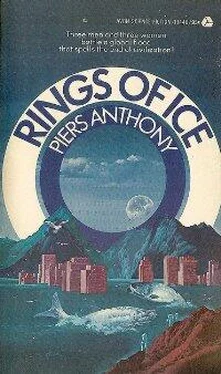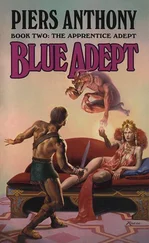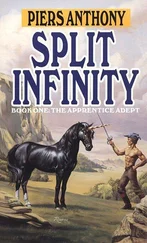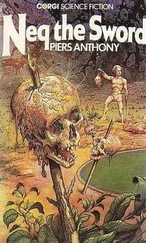“Funny,” he said. “You look brown. Or black. Eyes. I must be getting drunk.”
“That’s right,” Karen said. “Floy’s the one with black eyes.”
“Yeah,” Floy agreed, obviously enjoying her first licit alcohol. “ ’Cause I hit myself in the face so often.”
“Black-eyed or not, you’re a cute one,” Gus said grandly. “You did just great in that dance.”
“Yeah,” Floy agreed, flattered.
“I’d take you to bed in a moment—”
“Why don’t we sing a song?” Zena suggested quickly.
“Hey, pretty little black-eyed Susie,” Gus sang, slopping his drink as he gestured expansively. “Hey, pretty little black-eyed Susie! Hey, pretty little black-eyed Susie, hey!”
“Hey, I like that song!” Floy said.
“Watch it,” Zena warned. “Some of the words—”
“Susie and the boys went huckleberry picking,” Gus continued jovially. “Boys got drunk and Susie got a licking!”
Zena joined in the chorus: “Hey, pretty little black-eyed Susie!”
“Susie and the boys went whiskey brewing, Boys got drunk and Susie got a—”
“Licking!” Zena finished loudly, drowning him out Karen choked on a mouthful of brandy, laughing.
Undismayed, Gus went through the chorus and started the next verse. “Susie and the boys went corn shucking—”
This time everybody shouted “ Licking!”
Then Gloria tried a home-made verse in her husky voice: “Zena and the boys went ice-ring planing, Boys fouled up and Earth got a raining!” And the song dissolved into mirth.
Next morning they started the garden. Thatch and Gordon had already made a plateau of rich earth and boxed it in as well as possible. Now Zena planted the seeds according to the instructions on each package.
“We’ll need a privy,” Gus said. “Nothing like human ordure to fertilize a garden; mustn’t be wasted. I’ll draw up the plans.”
“And we’ll need water,” Zena said. “It may not rain for a long time. We’ll have to haul it or pump it. A lot of it, if we want the plants to grow properly.”
A fine beginning—but the weeds grew with far more vigor than the vegetables, and the insects were horrendous. Thatch and Gordon had to make a special foraging trip for weed killer and bug spray, for it wasn’t only the garden that was attacked. Zena necessarily spent much time carefully pulling out each intruder without disturbing the tame plants. She didn’t mind; it was peaceful and she felt useful.
Meanwhile, she saw much of the changing sky.
The second canopy was forming. Barely two weeks after the rains of Gunz ceased, Ring Mindel appeared—because it had taken six weeks for Gunz to form and rain itself out. This new ring was more massive, and higher in the sky. Day by day it spread across the heavens, twisting slowly about to form the equatorial attitude it should have had at the outset. That huge effort was costing it cohesion and stability, and so the ring that had been projected to endure fifty years would be in disarray in weeks. At that, its fate was better than that of the first ring, that had dissolved so precipitously that a formal canopy had never even formed.
At first Mindel was a thin vapor high in the heavens— two hundred miles, Zena thought. But it thickened and dropped lower, until the sun faded behind the mass of high cloud, and the under-surface of it was no further than a hundred miles above the ground.
Mindel was rotating. She could tell by irregularities in its structure, occasional rifts that let the sunlight through. It moved as fast as the sun, but opposite; a rift in it would rise in the west and set in the east twelve hours later.
But that was the least of it. The cloud cover was not even. It swirled in long strands, like a raveling rope or an endlessly writhing snake. Zena was fascinated by the slow undulations, seeing them as the struggles of an alien visitor: the ice nebula.
A reptile encircling the globe, like the Midgard Serpent of Norse myth. A creature whose poison overwhelmed the Earth in a great flood—as Mindel was about to do. How bad would that flood be? No one could really say; it depended on the efficiency of that misguided military project, intended to save the world by solving its power crisis simplistically—but actually destroying it.
Zena looked up, startled, a small weed in her hand. Midgard—Mindel. A coincidence of nomenclature, surely, but did it reflect reality? Götterdämmerung—the end of the world. The Biblical flood. Surely there had been a monstrous flood in antiquity; the mystery had been its cause. God had decreed it, perhaps, commanding the rain to fall, but no normal precipitation could actually have raised the level of the ocean. Could it have been such a canopy, visible as a snake or dragon in the sky, destined one day to swallow the entire Earth in the floods of its demise?
She stared at the massive, endless torso of Mindel, and began to believe. If man survived this, there would be new legends, similar to the old.
“There’s a station!” Gus cried happily. “Someone’s broadcasting again!”
“Ham,” Gordon said. “Some ham got his equipment going again. Those hams are indomitable.”
“I don’t care who it is!” Gus said. “It’s civilization!”
This turned out to be true and not true. The hams were now in operation—but their dialogue only confirmed the devastation wrought upon the world. Just over a hundred feet of rain had fallen, wiping out every major city the hams knew about. Now they spoke for small groups of survivors who were trying to organize a new nation built upon the highlands. Mechanics were putting motor vehicles back in operation; builders were constructing mass housing. The nearest reconstruction center was in Atlanta, though it was laboring under the handicap of senseless vandalism that had destroyed much of its fuel reserves. The radio invited anyone in the area to participate in the recivilization effort.
“They’d kill us,” Gus said morosely. “We don’t dare go near that place! Anywhere but there.”
Thus they had forfeited their place in the new order. “It doesn’t make much difference, really,” Zena said. “There’ll be more rain—lots more. It will wipe out everything they rebuild.” She shared the guilt with Gus for that debacle: he for planning it, she for compounding it. Neither of them had anticipated the full cost of that endeavor, and both had to deprecate its importance. It did not make her like Gus any better, however; she was a partner with him in crime.
“If only we had asked them for what we needed,” she groaned to herself. “Instead of coming as thieves.”
Dust Devil took to keeping Zena company in the garden, and the little cat was sociable enough in his way. He went after the larger insects—and these were becoming large indeed. Perhaps the presence of the puppy Foundling in the bus had encouraged the cat to seek other pastures, though the two animals seemed to tolerate each other well enough.
Usually Gordon hauled water for home and garden, carrying it in two buckets hung from a crude shoulder yoke. The best spring they had found was a mile away, so it was a time-consuming, tedious, tiring job. This time Karen came.
“Karen!” Zena cried. “You can’t do that! You could go into shock!”
Karen carefully poured each bucket into the little irrigation trenches Zena had made, then came to sit by her. “No danger of that. I regulate my insulin according to need—and hard exercise helps utilize the glucose in my system anyway.” She sighed, looking at the meager rivulets her water had made. “But it is true I shouldn’t overdo it. I’ll rest for a while.”
“Where’s Gordon?”
Читать дальше










